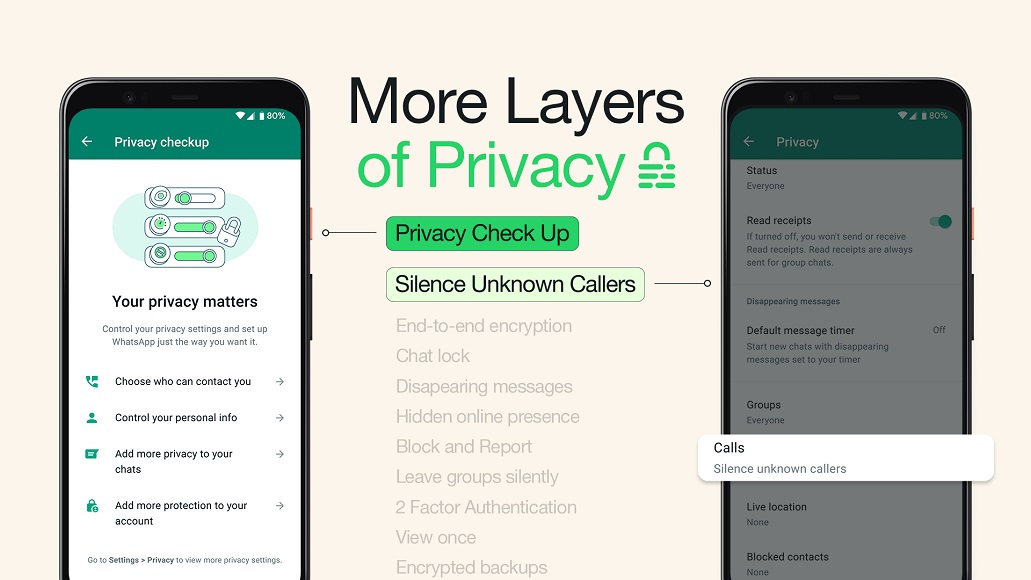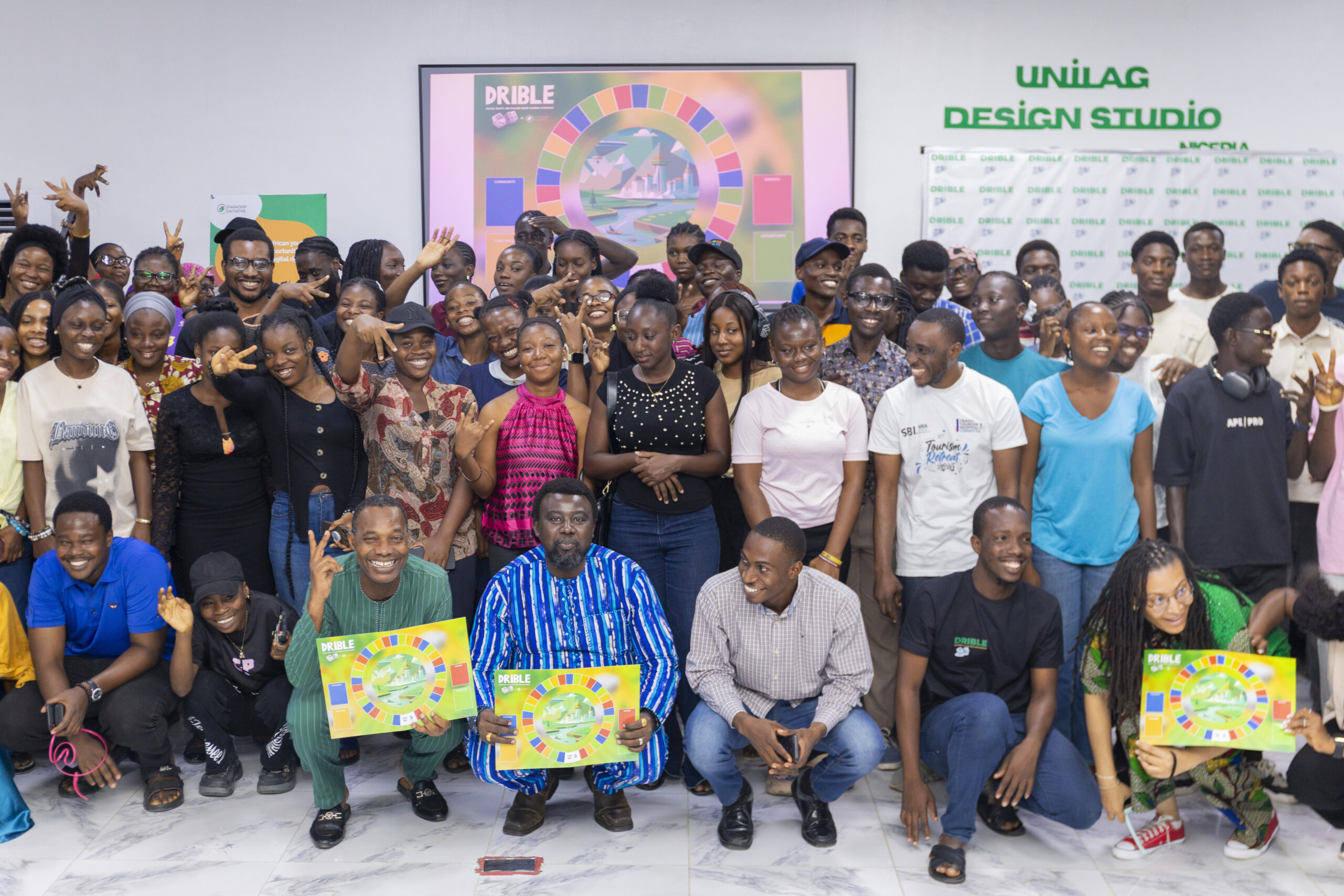Telecom
9 Ways to Ensure a Safer Messaging Experience on WhatsApp


Use Two-step verification to protect your account: Activate two-step verification to add more security to your WhatsApp account. Once enabled, you will be asked for a 6-digit PIN when resetting or verifying your account. This safeguards your account against phishing attacks and takeover attempts by scammers.
Always use the official app: Make sure you’re using the latest version of the official WhatsApp. Your messages are only secure and private when using the official app. Make sure the logo looks correct, and the name of the app is just “WhatsApp”. Fake apps pose security risks, including sending spam and scams to others without your knowledge. If you’re on Android and simply want two accounts on your phone, you can now add a second account using one official app (Learn more)
Safeguard sensitive information with disappearing options: For greater privacy on your messaging experience, you can choose to send photos and media with View Once that will allow recipients to see the message only once without the option to save, forward, screenshot or share the message. View once is also available for voice notes, allowing them to be played just once.
Switching off read recipients and using disappearing messages are other features to further protect chats that are important to you.
Protect your most personal chats with Chat Lock: Add another layer of security to your intimate conversations with chat lock. It places a particular chat thread in a folder that can only be accessed by you. You can also create a unique password that’s different from your device password to protect chats that mention personal or financial information. In the event someone else gets access to your phone, chat lock will keep your conversations safe from prying eyes.
Be the best admin for your Group/Community: If you’re the admin for your work WhatsApp group or your neighbourhood community, you can safeguard it to ensure it’s a place for meaningful connection and conversations. You can decide who joins a group, restrict members’ permissions to make changes to your community’s subject, icon or description, even delete unwanted messages or remove members.
Protect against scams: Scams can happen anywhere, via calls, email or messages. The first step to protecting yourself is to pause and think. If you receive a suspicious message that asks for personal information, verify if you know the contact, have common groups with them or is even coming from the country you’re in. WhatsApp asks if you want to Block an unknown contact right away. Even later, it is easy to report and block suspicious contacts to keep your account secure.
Silence unknown callers: Calls from unknown numbers can disrupt your day.WhatsApp lets you silence unknown callers, helping automatically prevent spam and scam calls.
Only link devices from trusted sources: WhatsApp lets you link up to four devices to your primary phone for an uninterrupted chat experience. However, when linking your device to a desktop using a QR code, make sure you type in theURL web.whatsapp.com or have the official app (from whatsapp.com/download or the app store). You can also review your linked devices by going to Settings>Linked Devices and logging out any device you don’t recognise.
Take the Privacy checkup: Not sure about which privacy settings to use? Take the privacy check up on your WhatsApp app to know more about features that can keep your conversations protected and enable the features you need, all in one place.
Telecom
MTN’s ₦31.75Bn Investment in Health Lauded at Arthur Mbanefo Lecture

MTN Foundation has been spotlighted as a model for private sector-driven healthcare development in Nigeria, following commendations at the 6th Arthur Mbanefo Lecture held at the University of Lagos, Akoka.

Themed “A Healthy Nation is a Wealthy Nation: The Role of Impact Investments and Sustainable Financing in Nigeria,” the lecture featured Dr. Tolulope Adewole, Managing Director of NSIA Advanced Medical Services Limited (MedServe), as keynote speaker.
Dr. Adewole praised the Foundation’s strategic investments, noting that MTN commits 1% of its profit after tax annually to development sectors. “They’ve invested ₦31.75 billion, reaching over 32 million Nigerians. Though only 25% went to health, it accounted for 51% of all lives impacted. That’s catalytic,” he said.
He cited MTN’s dialysis centre programme as a transformative intervention for patients with kidney disease, and highlighted community-focused initiatives like the Y’ello Doctor mobile scheme and ‘What Can We Do Together’ (WCWDT) programme, which revitalised 164 Primary Healthcare Centres, including 44 in 2024 alone.
Executive Director of MTN Foundation, Odunayo Sanya, reflected on the COVID-19 pandemic’s exposure of systemic health vulnerabilities. “When COVID hit, we realised a health emergency is also an economic and social emergency,” she said.
Sanya revealed that of the 52 PHCs remodeled in 2024, only one had clean water. “I’m not a doctor, but I know you can’t live a good life without clean water,” she added, reaffirming the Foundation’s commitment to bridging healthcare gaps in underserved communities.
Telecom
PIN to Empower 20 Million Youths with New Digital Rights Board Game

Hundreds of university students across Africa are set to benefit from a new gamified learning experience on digital rights and inclusion launched by the leading pan-African non-profit organisation, Paradigm Initiative (PIN).

The Digital Rights and Inclusion Board Learning Experience (DRIBLE) is a game developed by Paradigm Initiative with support from the Open Society Foundations (OSF). The custom-designed board game provides young individuals with a fun and engaging entry point into digital rights and inclusion conversations, training sessions and storytelling tools.
The board game aims to build digital literacy, deepen understanding of online safety, and introduce young individuals to the organisation’s tools of impact. Currently being piloted in three universities: University of Lagos, Nigeria, the Catholic University of Eastern Africa (CUEA) in Nairobi, Kenya and the Dakar American University of Science and Technology (DAUST) in Dakar, Senegal, it will enhance interactions and create a holistic experience.
Speaking at the event launch at the University of Lagos, Nigeria, ‘Gbenga Sesan, Paradigm Initiative’s Executive Director, said: “PIN’s vision is to reach 20 million people through our Digital Inclusion and Digital Rights interventions. From Lagos, to Dakar, to Nairobi.. we will use the vehicle of our new Digital Rights and Inclusion Board Learning Experience (DRIBLE) which entails using gamification, training, multimedia materials, tools and other interventions to connect African youth with digital opportunities and protect their digital rights.”
‘Gbenga gave the keynote address on “Digital inclusion at PIN, our Past, Present and Future” and Nnenna Paul-Ugochukwu, the organisation’s Chief Operating Officer, said the goal of the learning experience would be instrumental in raising awareness of digital rights among the youth, building their capacity to address digital rights and inclusion issues in their communities. Prof. Olunifesi Adekunle Suraj shared a goodwill message with the students and other stakeholders.
Paradigm Initiative, which has been operational since 2007, started in a tiny cybercafe in Ajegunle, Lagos, Nigeria. Today, the organisation has expanded its wings to cover six African countries; Cameroon, Kenya, Nigeria, Senegal, Zambia and Zimbabwe, impacting the livelihoods of over 150,000 young Africans.
The launch of DRIBLE builds on the progress the organisation has made over the years in tackling the challenge of digital exclusion across Africa.
Paradigm Initiative’s tools of impact include Ripoti, a platform that enables individuals to report digital rights violations, Ayeta, a platform that provides digital security resources for stakeholders, more so human rights activists, defenders, journalists and other vulnerable groups, and the organisation’s latest short film, Whispers in the Wires.
Targeted at students, PIN rolled out a Campus Tour in the three universities on the continent starting July 15th, 2025.
Telecom
Meta Cracks Down on Fake Accounts, Deletes 10m Profiles

Meta, the parent company of Facebook, has intensified its crackdown on fake accounts and spam, announcing it removed over 10 million fake profiles and roughly 500,000 spam accounts in the first half of 2025.

The sweeping purge is part of Meta’s broader effort to combat impersonation, fake engagement, and content duplication, aiming to elevate authentic creators and improve the quality of content across its platforms.
In a blog post, Meta said: “We’re making progress. In the first half of 2025, we took action on around 500,000 accounts engaged in spammy behaviour or fake engagement. We also removed about 10 million profiles impersonating large content producers.”
Meta stressed that accounts which primarily repost or recycle content without meaningful edits will face penalties such as reduced reach and the loss of monetisation tools.
The company also warned that repeatedly sharing unoriginal content — whether videos, photos, or text — undermines the platform’s integrity by crowding out genuine voices and making it harder for new creators to grow.
To support authentic creators, Meta is rolling out new tools that automatically trace reposted content back to its original source. The company says this will help ensure rightful credit and give higher visibility to original posts.
“Pages and profiles that post mostly original content tend to enjoy wider distribution across Facebook. Simply stitching clips together or adding a watermark will no longer count as meaningful editing. Content that provides real value and tells an authentic story is likely to perform better,” Meta explained.
Creators are also being cautioned against uploading content that includes watermarks from other platforms. Such posts could see their reach restricted or lose monetisation privileges altogether.
As part of its latest update, Meta introduced post-level insights on the Professional Dashboard, allowing creators to monitor how individual posts perform. They can also check their Support Home screen to see if their content or earnings are facing restrictions.
In a parallel development, Google’s YouTube updated its monetisation guidelines, stating that content deemed mass-produced or excessively repetitive will no longer qualify for ad revenue. The announcement initially sparked concern among creators, who feared it was a blanket ban on AI-generated content. YouTube later clarified:
“We welcome creators using AI tools to enhance their storytelling, and channels that use AI in their content remain eligible to monetise.”
Both tech giants say these new policies are aimed at raising content standards and safeguarding genuine creators in a crowded and rapidly evolving digital landscape.

 Telecom2 days ago
Telecom2 days agoMTN’s ₦31.75Bn Investment in Health Lauded at Arthur Mbanefo Lecture

 E-Financial3 days ago
E-Financial3 days agoZenith Banks Leads as 8 Banks Suffer N156Bn Impairment Charges

 News2 days ago
News2 days agoCAC Flags Three Companies, Warns Nigerians

 Telecom3 days ago
Telecom3 days agoMTN @ Swish Fusion Summit, Showcases 5G Rollout Strategy

 E-Business2 days ago
E-Business2 days agoFrance Moves to Tackle Online GBV in Africa with $4.3m Funding

 E-Business3 days ago
E-Business3 days agoOlatunji, NDPC Boss Calls for Integrated Strategy on Data Privacy, Cyber-Security

 News3 days ago
News3 days agoUS Launches ‘Window on America’ @ Ogun Tech Hub

 E-Financial3 days ago
E-Financial3 days agoSEC Flags FF Tiffany as Ponzi Scheme



























